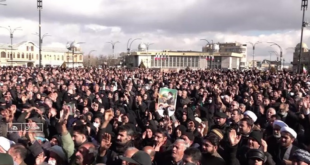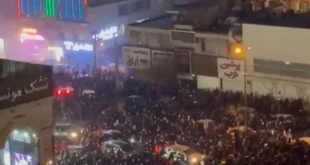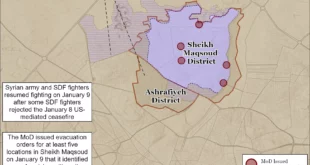TYRE — Hussein Ali Ayoub was washing his face one morning in his border village of Maroun Ras in southern Lebanon when the ceiling suddenly collapsed.
He had refused to follow his parents to a nearby shelter before Israeli bombardment of the village. His last memories are hearing two loud explosions before waking up at a hospital in the city of Tyre, suffering wounds in his foot, knees and back.
His parents are missing, and so are his wife and four children. “I can’t stop thinking of them,” he said, sitting on a mattress at a UN-run school in the Palestinian refugee camp of Buss in Tyre that is sheltering hundreds of Lebanese families who fled the war between Israel and Hizbollah. “If I don’t hear from them for another week, I will go mad. I will explode,” the 43-year-old construction worker said. Ayoub’s wife, Najibeh, had taken her daughter and three sons to a village near Tyre before the bombing of Maroun Ras, a scene of fierce fighting between advancing Israeli troops and Hizbollah fighters. When he went to check on them, they were gone, leaving no trace behind. The 25-day-old war, ignited after Hizbollah’s capture of two Israeli soldiers in a cross-border raid, has taken a heavy toll on civilians in Lebanon.
The Beirut government says at least 900 people have been killed and one million, a quarter of the population, have been displaced. A Reuters tally puts the death toll at 734 in Lebanon and 75 Israelis. As anxious as he may be, Ayoub still hopes to find his wife and children. For some other refugees, the most they can hope for is that the bodies of loved ones will be recovered. “My parents are under the rubble of my house and they are probably dead,” said Abdullah Hussein, 57, lighting a cigarette. His father, Mohammad Ali, 85, and his 80-year-old mother were stuck in the village of Tair Harfa, one of many in Tyre’s hinterland that has come under heavy Israeli attacks. “I hope I can go there, pull them out and bury them,” said Hussein, whose hands are rough from chopping wood for living. Hussein has lost relatives in past wars — his brother Abbas was killed shortly after the 1982 Israeli invasion of Lebanon and two nephews, Nidal and Mouein, were Hizbollah fighters who were killed fighting to Israel in south Lebanon in the 1980s.
Another refugee, Mohammad Rasatmi, has not seen his cousin Mahmoud since the Israeli bombing of Qasmieyh village near Tyre about a week ago. “We are no different than other people who are losing their family members in this war,” said the 45-year-old gardener, now a refugee in the city of Sidon.
 Eurasia Press & News
Eurasia Press & News



